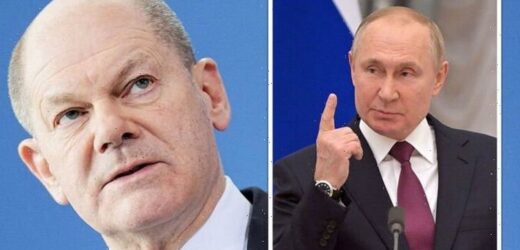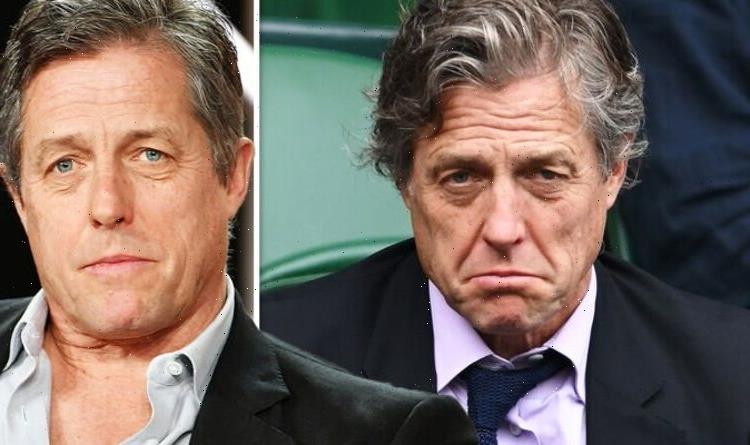Alok Sharma: North sea gas extraction won't solve energy crisis
We use your sign-up to provide content in ways you’ve consented to and to improve our understanding of you. This may include adverts from us and 3rd parties based on our understanding. You can unsubscribe at any time. More info
German Vice-Chancellor Robert Habeck has secured several new contracts with the United Arab Emirates (UAE) to import blue hydrogen. While considered a renewable energy source, blue hydrogen is derived from natural gas through the process of steam methane reforming (SMR). Unlike its “green” cousin – which is created using renewable electricity – blue hydrogen also uses carbon capture and storage (CCS) to bury emissions underground.
Mr Habeck said following his visit to Abu Dhabi: “The accelerated expansion of hydrogen supply chains is a very pivotal factor in the transition to sustainable energy.”
Berlin has laid out plan to import some three million tonnes of blue hydrogen to be used by 2030.
As a consequence, securing contracts with potential exporters like the UAE became a top priority, with the previous administration overseeing the launch of the Germany-UAE energy partnership in 2017.
The UAE has ideal sunny weather conditions for the cost-effective production of hydrogen from renewable energies and wants to “deliver the first hydrogen to Germany in 2022,”


But German Chancellor Olaf Scholz has come under intense pressure over the current crisis in Ukraine.
Even before Vladimir Putin’s horrifying invasion, Berlin had been warned of its over-reliance on gas./
Germany imports some 40 percent of its supplies from the Kremlin, which has made sanctioning Russian energy more complicated for the EU.
Despite publishing an energy strategy detailing how the bloc will scupper energy ties with Putin, the EU has still yet to follow the UK and the US in sanctioning Russian oil.
Some countries, such as Ireland and Lithuania, have suggested that an embargo on the Russian oil industry is absolutely necessary to cut off Moscow’s main source of income.

It is now looking increasingly likely that oil will be sanctioned but gas left off the table as this would be less damaging for the EU’s economy.
But that will also provoke more arguments within the bloc.
Polish Prime Minister Mateusz Morawiecki said: “Fully cutting off Russia’s trade would further force Russia to consider whether it would be better to stop this cruel war.”
France has argued that there should be no “taboos” in terms of sanctions if the situation in Ukraine gets worse.
Mr Habeck said on public radio DLF on March 19 that completely slashing Russian energy imports could mean a “three percent to five percent loss of GDP”, which would lead to “some people no longer earning any money at all”.
DON’T MISS
Putin blinks first: Bumper gas supplies sent to EU [REPORT]
Putin sent horror warning over next Ukraine move: ‘WW3!’ [INSIGHT]
Putin bowel cancer speculation fuelled by ‘Moon face’ fears [REVEAL]

If certain sectors, such as the chemical industry or steelworks, can no longer produce, entire supply chains will break down.
“Not only are these sectors affected, but the entire production process breaks down in many places.”
But that position has come under fire.
Veronika Grimm, one of five members of the German Council of Economic Experts, said: “We will have to accept a loss of prosperity in the medium term anyway if we want to become independent of Russia.”
Source: Read Full Article


